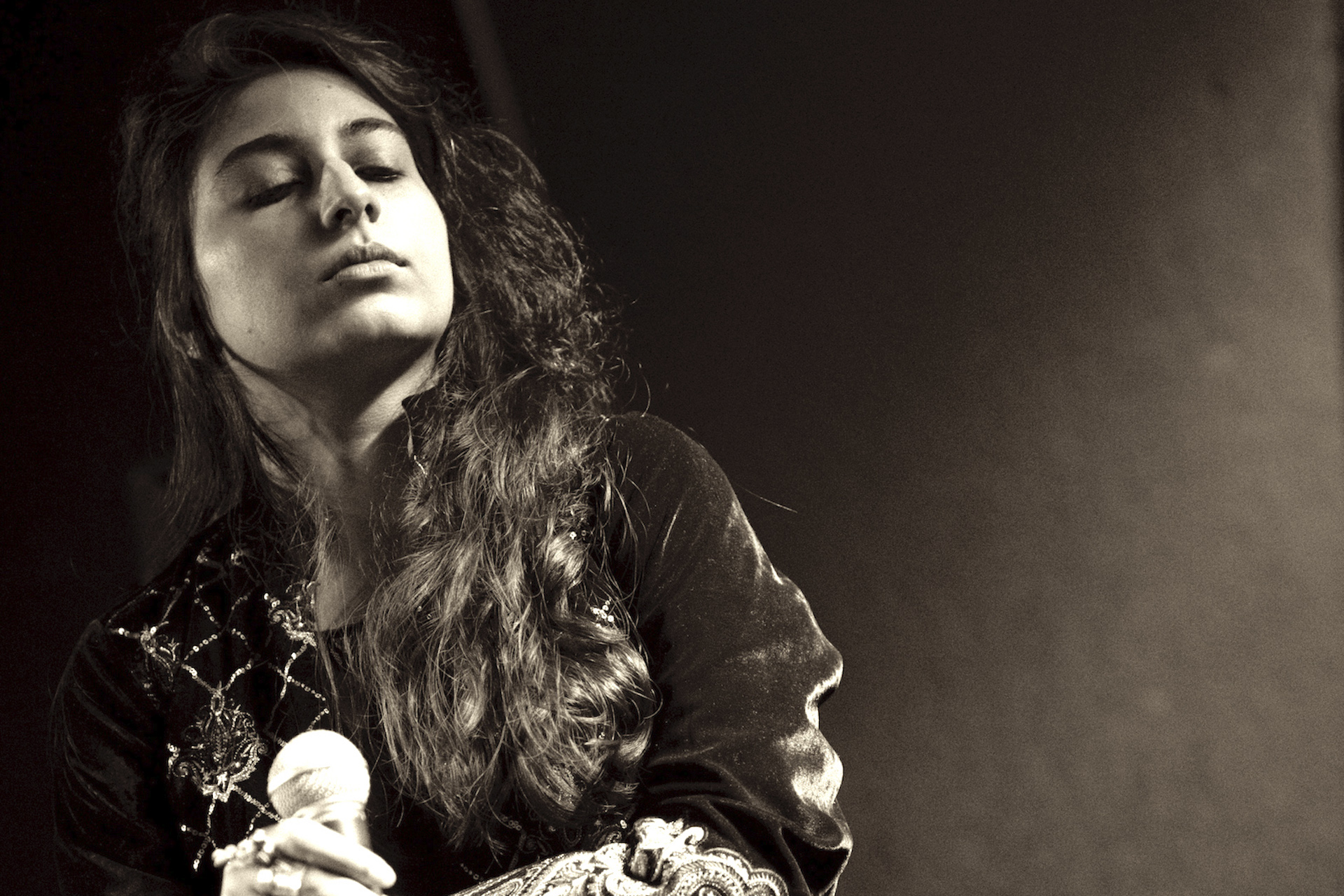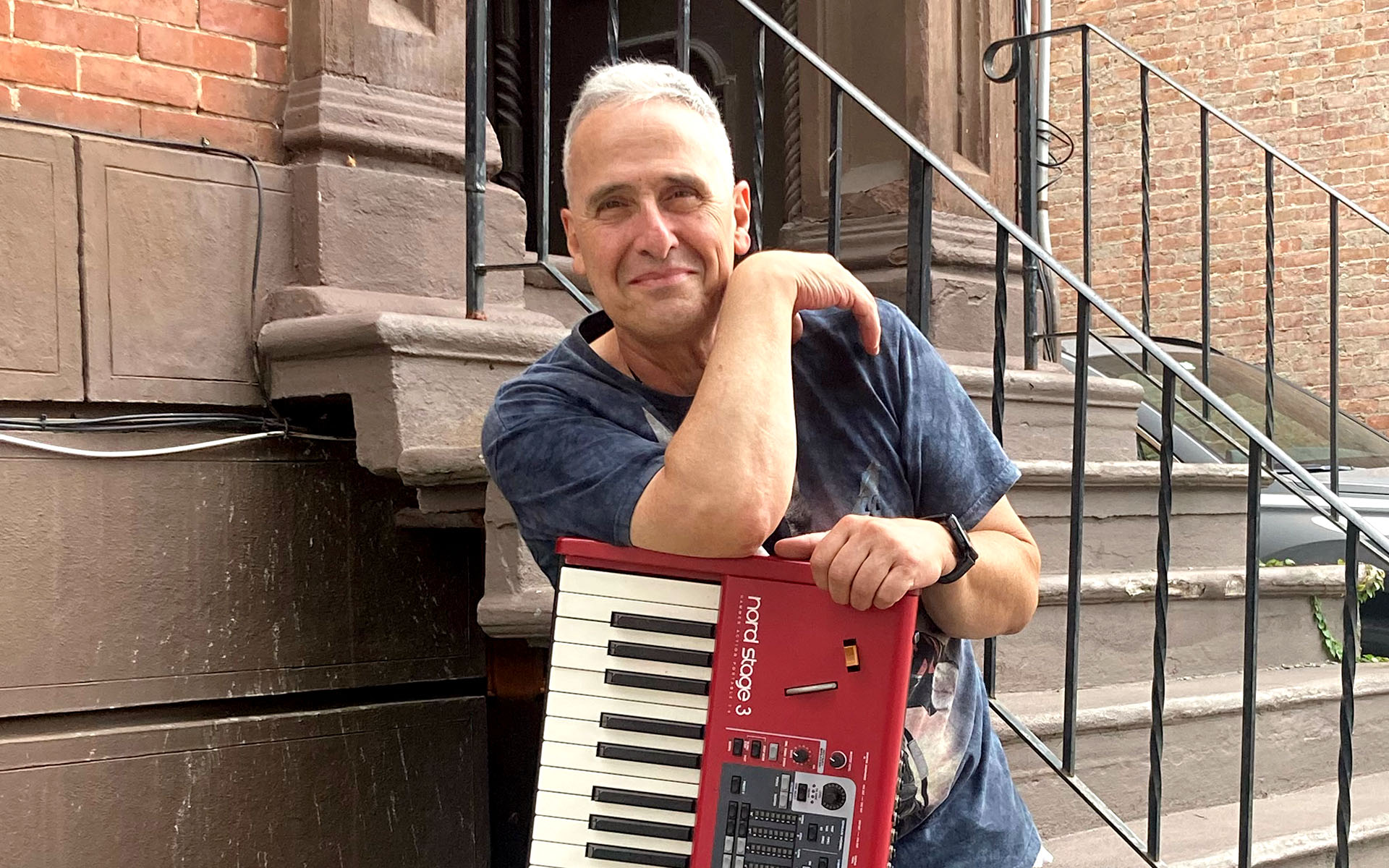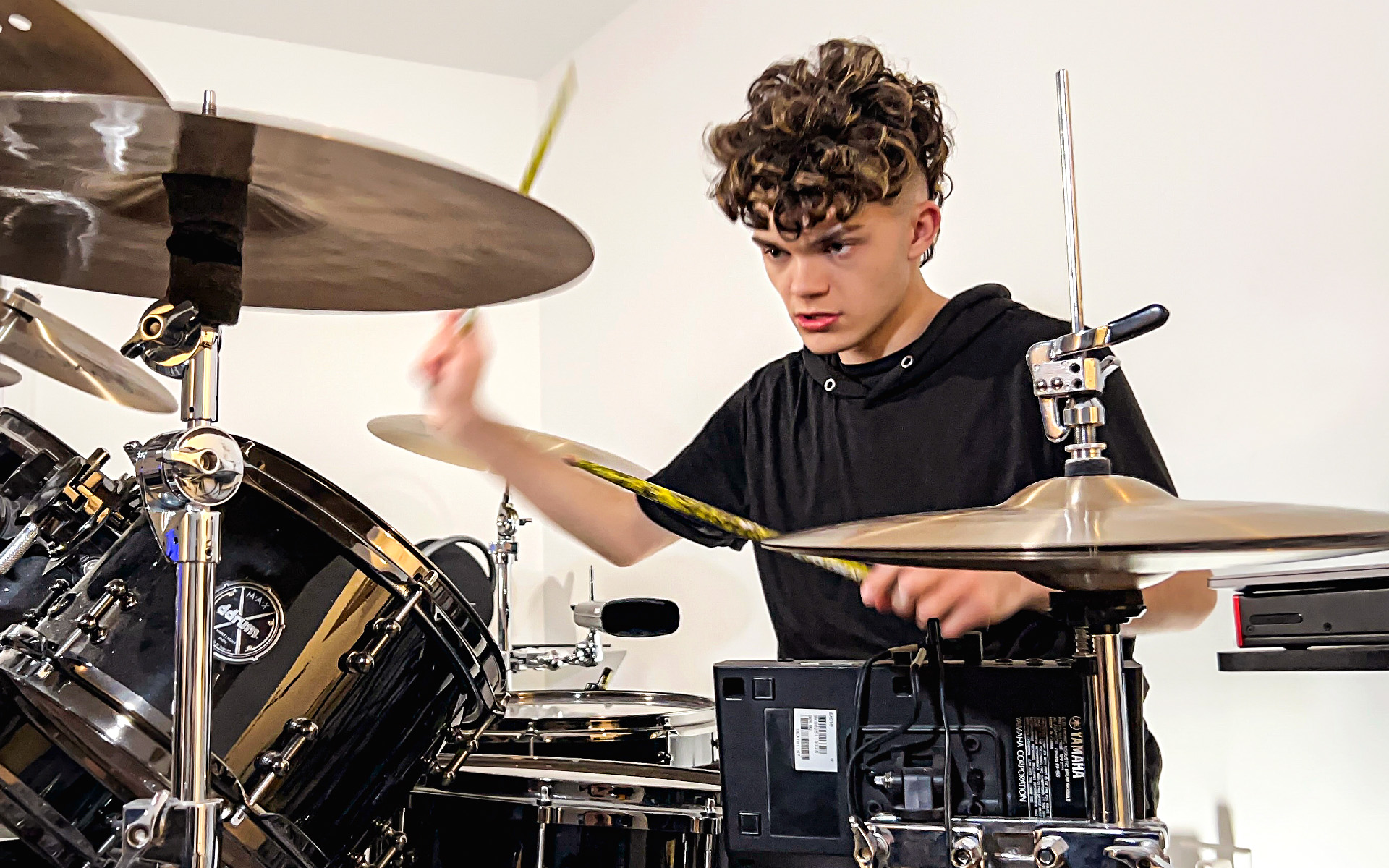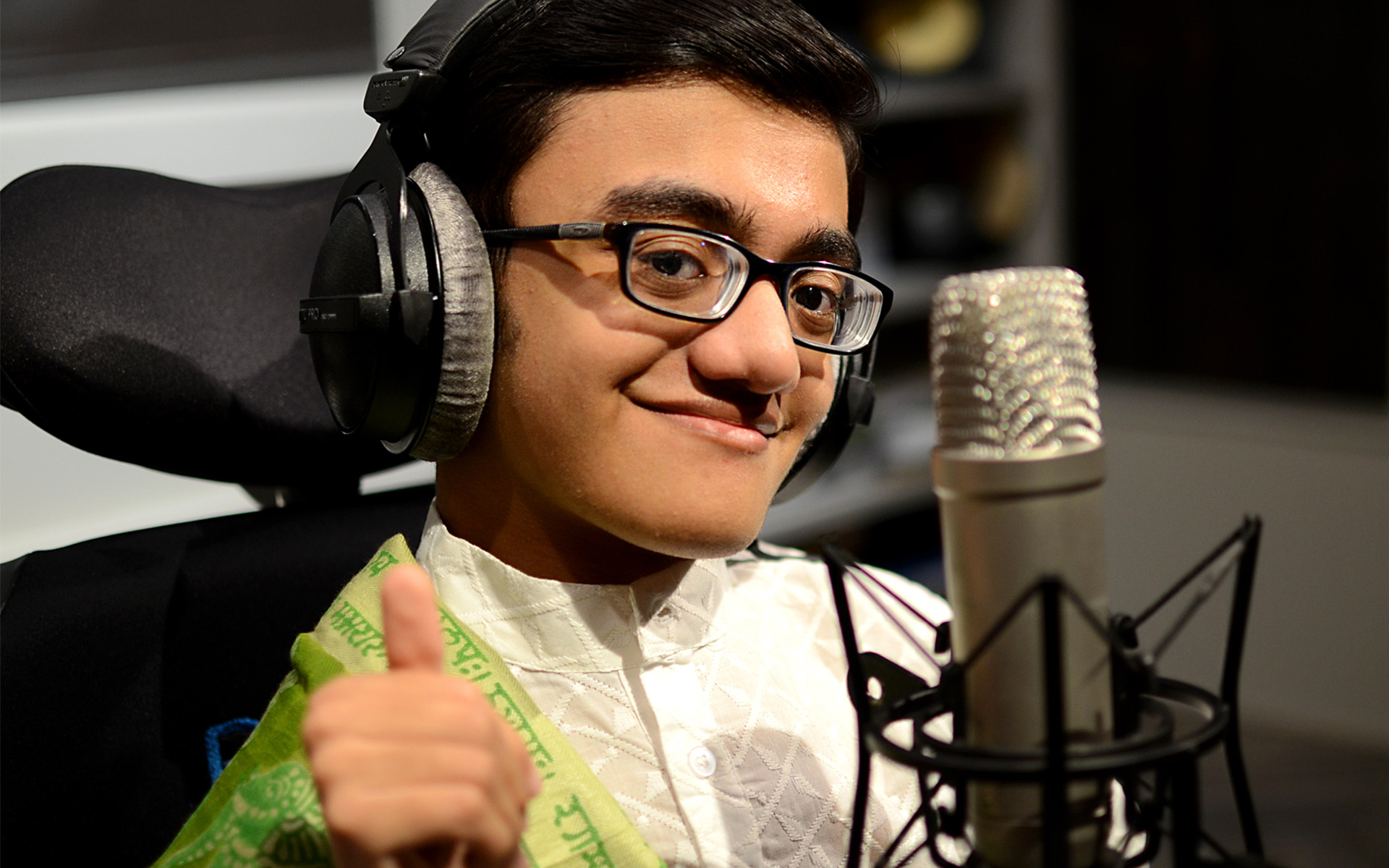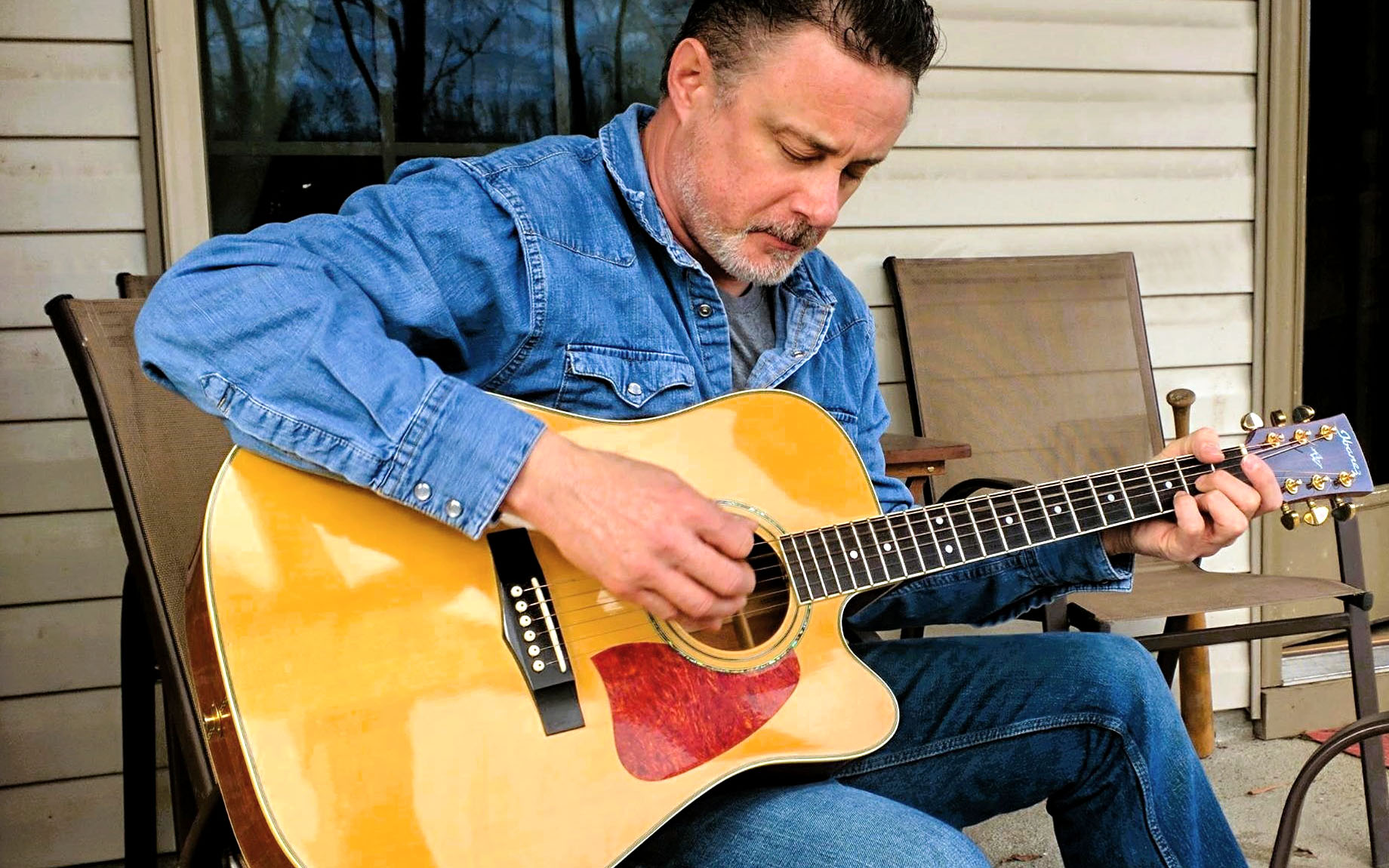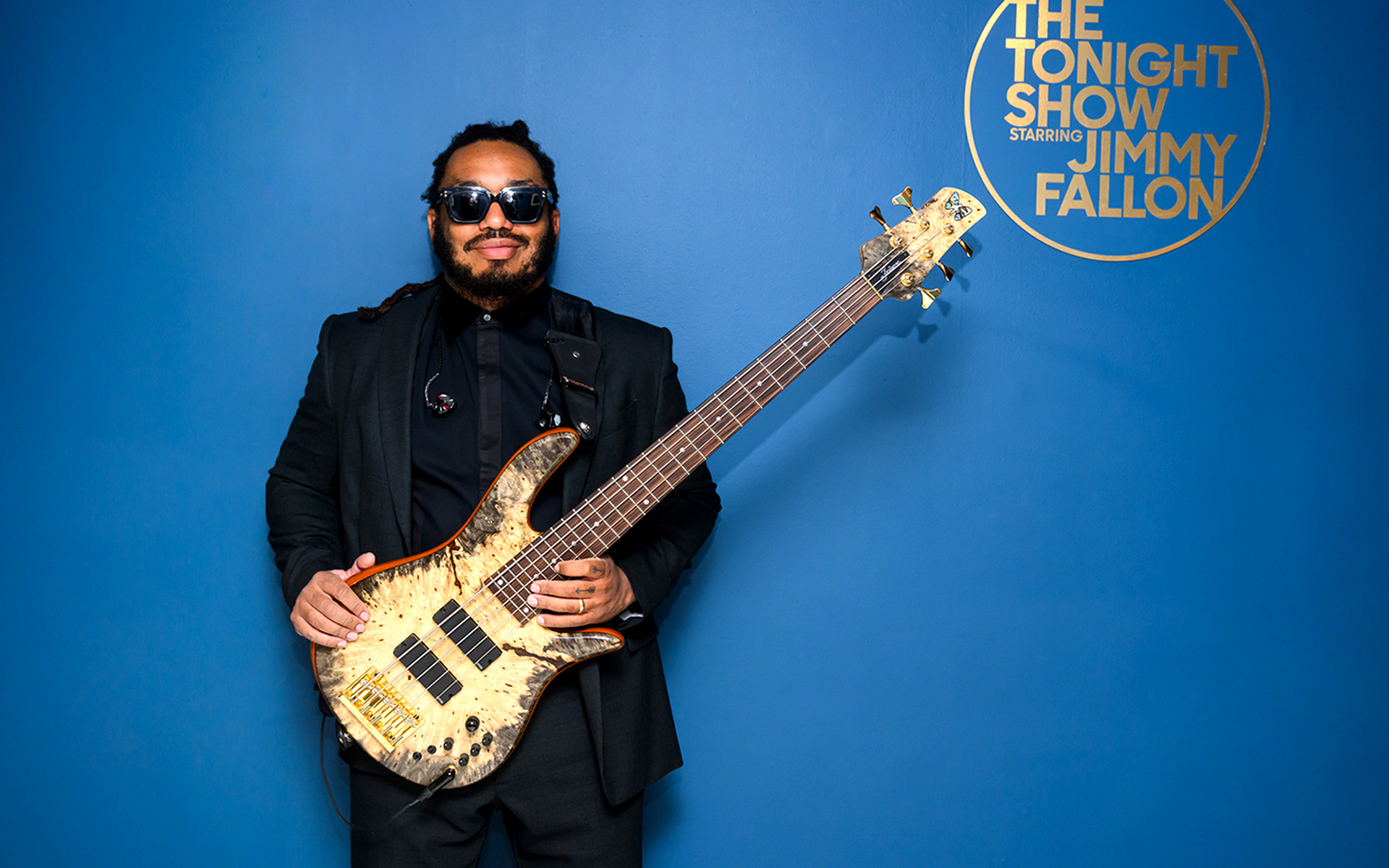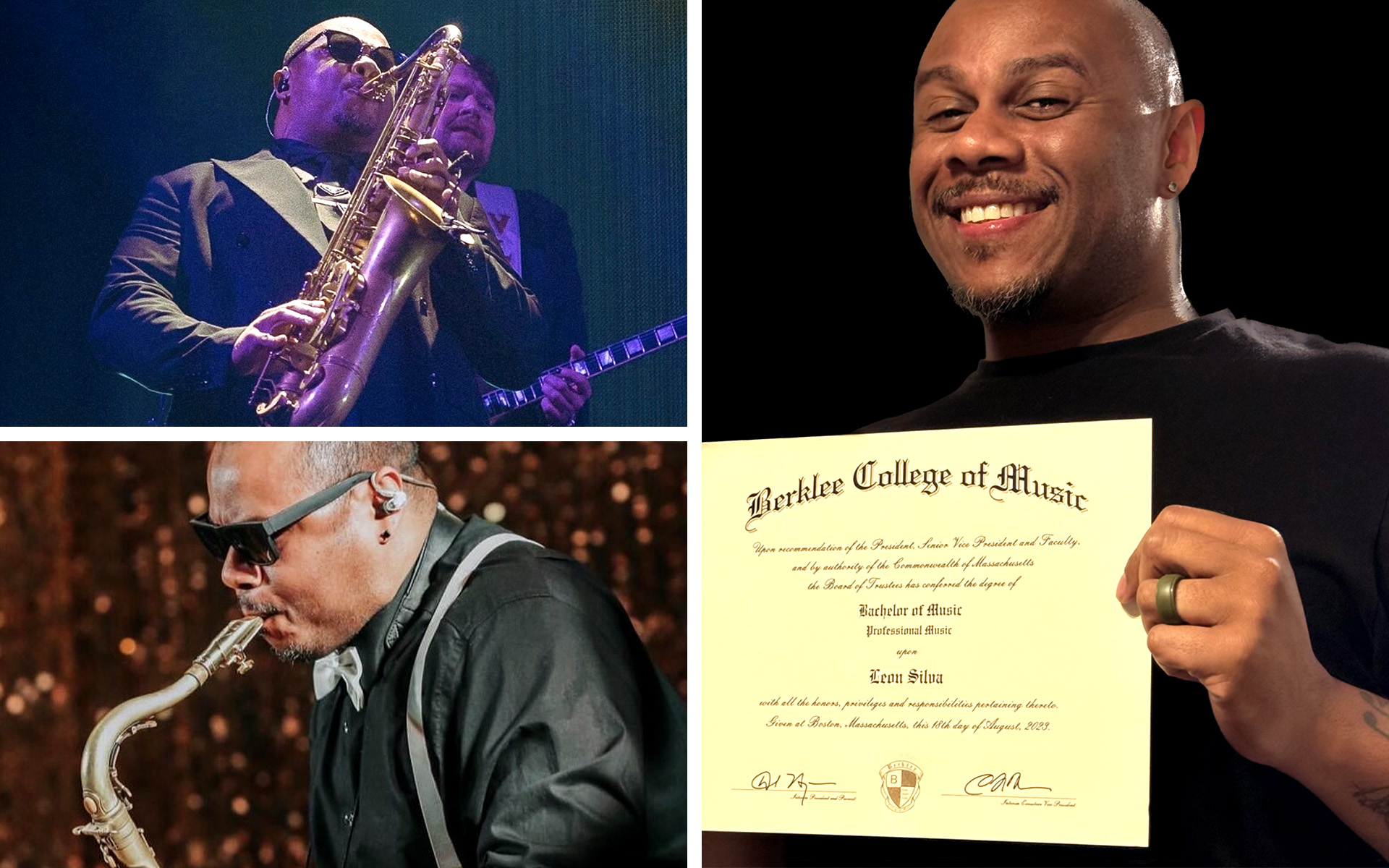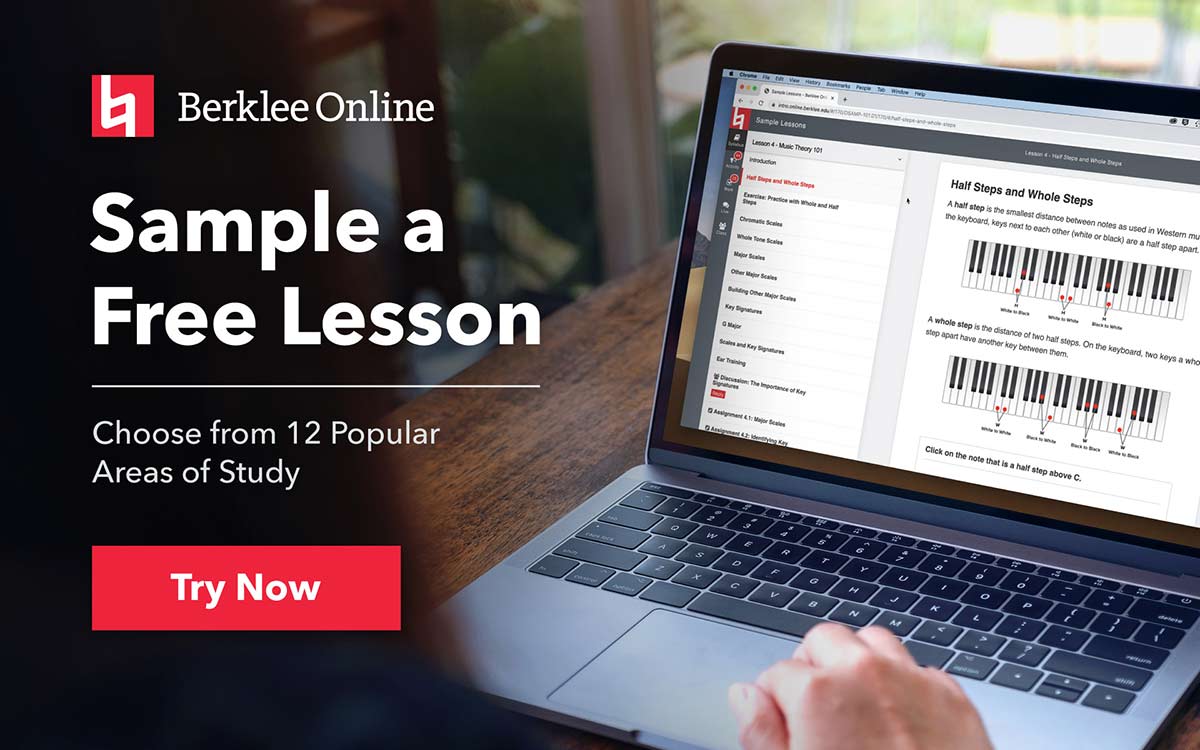In 1985, Paul Zarvis started his first semester at Berklee College of Music’s Boston campus. He was offered a full scholarship to study classical piano, but Paul wanted to be a rock musician, so he dropped out and hit the road with various bands. Nearly four decades later, Paul is pursuing his bachelor’s degree in Music Production through Berklee Online.
“I always wondered, ‘What if I stayed?’” says Paul. “I always wanted to do Berklee, and long story short: when Covid hit and everyone was locked in, I said, ‘I’m going back to Berklee. I’m going to see what happens. And here I am.”
Currently, Paul is 64 and based in Albany, New York, with his wife Tanya. Unlike what the Beatles song about that age suggests, Paul is spending this year recording in his home studio, gigging around his local music scene, and collaborating on projects with his Berklee peers, rather than knitting sweaters by the fireside.
“Being older doesn’t mean that you can’t make relevant music with today’s technology, and I’m learning that in spades,” says Paul.
Paul’s life in music began growing up in Lenox, Massachusetts, home to the annual Tanglewood Music Festival, the summer residency for the Boston Symphony Orchestra. His mother was a piano teacher, and Paul says she taught with an “iron fist,” meaning she demanded he practice for four hours a day before he could go outside after school.
When the season was in full swing for the Tanglewood Festival, Paul says he would sneak onto the stage when no one was around so that he could play their grand piano. He only got caught once, and the person who caught him was Rudolf Serkin, one of the most revered pianists of the time. He says Serkin thought it was funny and even gave him a few piano lessons when he returned to Lenox.
“We didn’t have a whole lot of money, but to hear that big, huge nine- or 10-foot concert grand that they had up there, it was awesome,” says Paul. “And I used to love going in there and playing. I would just bring a little flashlight and just play all night.”
As a teen, Paul was influenced by the music his older brother was listening to and started to transition from classical to rock piano. He had the opportunity to audition for Dan Hartman, who was a member of the Edgar Winter Group, and went on to have a successful solo career. Paul would have gone on tour, but he was a teenager at the time and his mom wouldn’t sign off on it and insisted he finish high school.
“She was a college teacher and she really believed in school,” says Paul. “So she was like, ‘Nope, you’re not going.’”
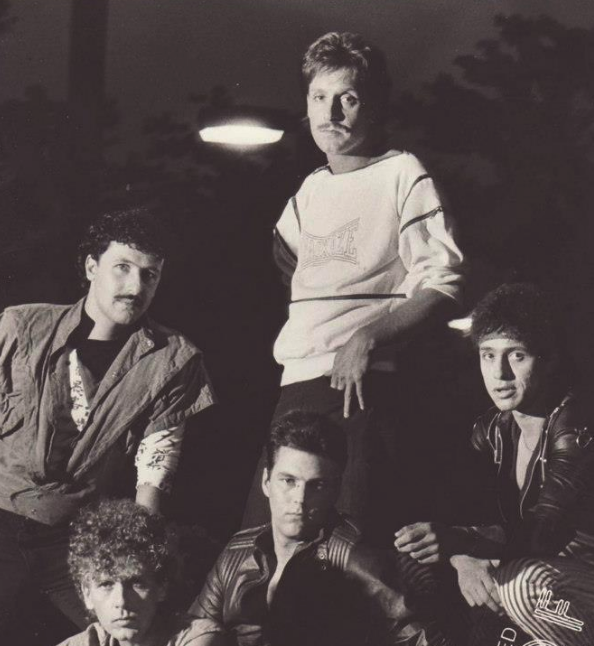
The band Blind Date 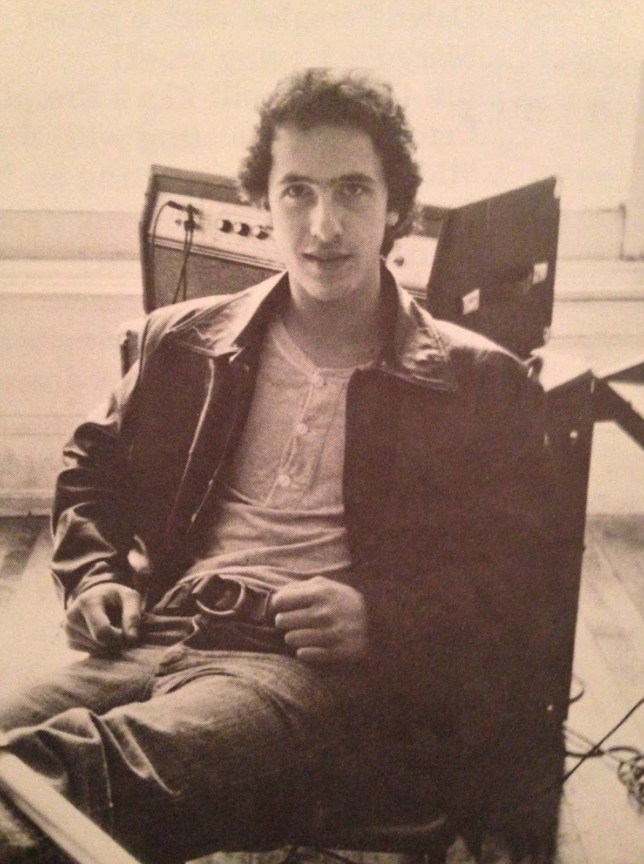
Paul Zarvis when he was in the Zarvis-Allen Band
Throughout his 20s, Paul had an exciting run performing and touring in the bands Blind Date and the Zarvis-Allen Band, opening for Tower of Power, Orleans, Bonnie Raitt, and many others. One lesson he learned from Bonnie that he’ll never forget is to write from the heart.
“There’s a song I just put out called ‘Fly Away’ that talks about my misspent youth, but it’s the truth and it comes across in the recording,” says Paul. “If you write what you know, if you write what’s true, I think people recognize that.”
When Paul talks about his “misspent youth,” he’s referring to a time when he was struggling with substance abuse, which resulted in him being incarcerated for 14 years. He says he’s now been sober for many years.
“At that time in the ’70s and ’80s, it was nothing to walk into a club and people hand you cocaine, just buy you drinks or whatever,” says Paul. “It was natural just to drink on the job. But at that time, that was the rock ’n’ roll scene and that’s what you did. And when I realized it was a problem is when it started taking over my life, instead of my music, and it took me a long time to get out of it and I’m really glad I did.”
During the time that he was incarcerated, Paul says that he did some of his best songwriting.
“I think it was because of the focus,” he says. “There’s no clutter, there’s no noise, there’s no anything.”
Paul says there were no music resources other than a Casio keyboard in a church that he had access to on Sundays. He made do by writing a whole album in his head.
“I wrote out the chords over the lyrics and I would just put in the tempo and the time signature and kind of figure it out, but I would basically sing it in my head over and over again,” he says. “When I got out and recorded the songs, I felt like I’d been playing them for years.”
Now Paul has a recording studio in his home where he runs his own company, offering everything from songwriting, to keyboard sessions, mixing, production services, and now vocals. During his time in the Music Production program, Paul made a special connection with Berklee professor and Grammy Award-winning producer Prince Charles Alexander, who encouraged him to start singing more. Paul says he got close to Prince Charles by “being a pain in the butt,” asking him questions during class, getting advice on gear, and getting feedback on his songs.
“I consider him a friend and a mentor,” says Paul. “I went out to Boston to see his Celebrating 50 Years of Hip-Hop presentation, which was amazing, and I followed his career. He’s always showed me what to stay away from and what to go for. And he keeps telling me, ‘sing, sing, sing.’ I don’t think I’m a great singer, but he seems to think I’m really a good singer. He is always telling me to keep singing.”
Recently Paul started getting into film scoring and foley work and is taking the Digital Cinematography Fundamentals course. He says he’d like to work at a professional sound design studio when he graduates with his degree in 2025.
“My main goal from Berklee is to learn to be a better musician, better songwriter, and a better audio engineer, and I want to get a job out of this at the end,” says Paul. “There’s a studio in New York called Gramercy Post, and that’s why I’m trying to keep up my grades and keep doing good because I want to be able to eventually work there.”
Even at 64, Paul has his whole career ahead of him and plenty of more music to share.
“Berklee lets you be who the hell it is you want to be and speak your voice,” says Paul. “To the older people, you’ve still got truth, you still have things to say musically, so say it. Get out there. It’s not like we’ve got forever!”




